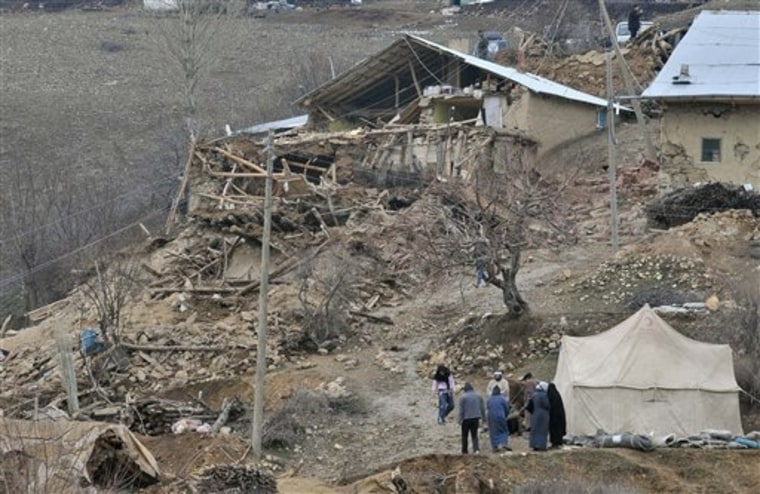Experts say there is nothing unusual about the latest spate of earthquakes in Haiti, Chile and now Turkey, but their devastation illustrates how growing construction along the world's fault lines can lead to massive casualties.
Seismologists say that although one powerful quake can conceivably raise the risk for others elsewhere, the recent string of quakes is probably just coincidence.
Bob Holdsworth, an expert in tectonics at Durham University, said Monday that "I can definitely tell you that the world is not coming to an end."
Bernard Doft, the seismologist for the Royal Netherlands Meteorological Institute, says there is no direct connection between the lethal quakes that have struck Haiti, Chile and Turkey.
"These events are too far apart to be of direct influence to each other," he said.
Although the Haitian quake occurred along a fault that had seen no major event for 250 years, both Chile and Turkey are prone to devastating quakes.
"It was by accident that it happened at approximately the same time," he said.
More than half the cities with at least 1 million people are on active plate boundaries, which are where quakes tend to happen, said University of Colorado geologist Roger Bilham. Unfortunately, despite past quakes, people continue to put up poorly constructed new buildings, said Bilham, who just returned from Haiti and observed these bad practices.
Monday's quake in Turkey had a 6.0 magnitude. On average, there are 134 earthquakes a year that have a magnitude between a 6.0 and 6.9, according to the U.S. Geological Survey. This year is off to a fast start with 40 so far — more than in most years for that period of time.
But that's because the 8.8 quake in Chile generated a large number of strong aftershocks, and so many occurring this early in the year skews the picture, said Earle.
"Years that have large quakes are likely to be higher in overall seismicity," Earle said. The Chilean quake was the sixth strongest since 1900.
Arthur Max in Amsterdam and Seth Borenstein in Washington contributed to this report.
